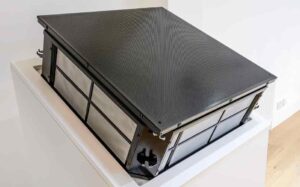Industry agrees new ac efficiencies
24th January 2016 USA: A new agreement on energy standards of residential central air conditioning and heat pump systems could save US consumers $38bn.
USA: A new agreement on energy standards of residential central air conditioning and heat pump systems could save US consumers $38bn.
The new standard developed by a US Department of Energy working group has been approved by the Appliance Standards and Rulemaking Federal Advisory Committee (ASRAC).
In the United States, about 60% of households have a central cooling system and about 19% of those systems are heat pumps. Virtually all new homes are built with central ac.
Andrew deLaski, executive director of the Appliance Standards Awareness Project and ASRAC’s representative on the WG, said, “The energy and bill savings from the recommended new central ac and hp standards will really add up for consumers and the nation. Savings will reach about 300 billion kWh on sales over 30 years (enough to cool 150 million average homes for a year) and $38bn in bill savings.”
“We are pleased see that yet again, industry and environmental leaders have been able to come together and reach an agreement that will benefit consumers, businesses, and employees for years to come,” said AHRI president and CEO Stephen Yurek, another participating company in the working group.
The agreement is the latest in a string of successfully negotiated energy efficiency standards completed by a diverse group of stakeholders, including manufacturers, utility companies, efficiency advocates, state government representatives, contractors, distributors, and DOE itself. Other recent examples include commercial rooftop ac and furnaces, and walk-in coolers and freezers.
The proposal for improved air conditioning and heat pump efficiency builds on previous consensus standards issued in 2011 that took effect last year and, before that, the large improvements that took effect in 2006. It is calculated that, combined, these three rounds of improvements (effective in 2006, 2015, and now 2023) will raise central air conditioning and heat pump efficiency by about 50% over a span of less than 20 years.
Once approved by the DOE, the energy efficiency levels agreed to in the negotiations will go into effect on January 1, 2023, but will be adjusted based on changes to product test procedures. Under the agreement (and using current test procedures), the efficiency level for residential central air conditioners under 45,000Btu/hr would be 14 SEER in the North, and 15 SEER in the Southeast and Southwest; for products over 45,000Btu/hr, the levels would be 14.5 SEER in the Southeast and Southwest, and 14 SEER in the North. Heat pump efficiency levels would be set at 15 SEER for all regions.







